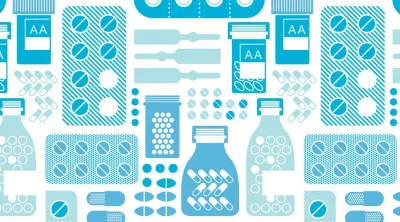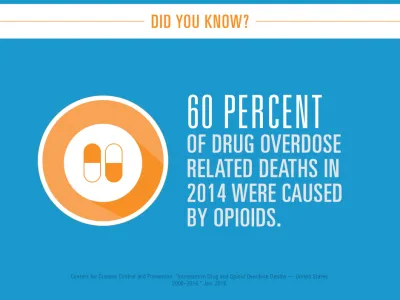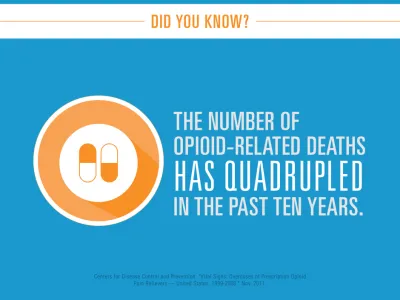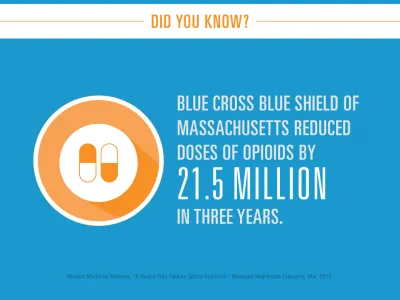Responding to the U.S. opioid crisis: What’s working in Massachusetts?

More Americans died from drug overdoses in 2014 than any year on record — a direct result of the country’s opioid crisis. Six out of ten of those deaths resulted from opioid overdoses, including heroin and prescription painkillers. Opioid overdoses have quadrupled in recent years, while the number of opioid prescriptions dispensed in U.S. pharmacies has nearly tripled over the past decade.
While public health officials, medical professionals, academic institutions and state and federal lawmakers are pulling together to confront the crisis, there is already evidence of what works.
Since 2012, Blue Cross Blue Shield of Massachusetts’s Prescription Pain Medication Safety Program has been working with doctors and pharmacists to follow a three-step checklist to ensure that patients aren’t receiving more medication than needed, which can lead to abuse or addiction. The program requires prior authorization for opioids prescriptions for more than thirty days and that doctors and patients co-sign an opioid agreement.
“The goal of treating pain is to relieve suffering and not to create more problems for patients.” - Dr. Edgar Ross, Medical Director for Pain Management at Brigham and Women’s Hospital
The program protects access to these medications for cancer patients and those who suffer from serious chronic pain by exempting them from these authorization requirements. For other patients, the program encourages doctors to consider non-narcotic treatment options and limits the amount of opioid medication that patients are prescribed while still allowing them to effectively manage pain.
The result? Blue Cross Blue Shield of Massachusetts’s program has reduced the number of opioid prescriptions and improved the quality of care for patients, according to a report from the National Center for Health Statistics. The program led to better communication between patients and doctors, improved care for patients and resulted in 21.5 million fewer prescribed doses of opioids.
“Our program is about preventing harm by making sure our members receive the highest quality care for pain, while reducing the risks that come with such treatments,” said Dr. Tony Dodek, Associate Chief Medical Officer for Blue Cross Blue Shield of Massachusetts. “The results are encouraging and show that, among other things, health plans can play a meaningful role in helping to prevent prescription pain medication addiction.”
Stories of Recovery
This video from Blue Cross Blue Shield of Massachusetts provides more information about the opioid and heroin crisis–from the perspective of those in recovery, their families, and medical professionals who work tirelessly to combat this growing problem.
For more information, visit the Blue Cross Blue Shield of Massachusetts' website.



